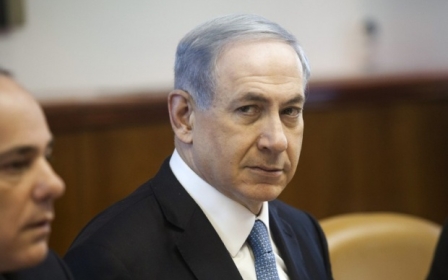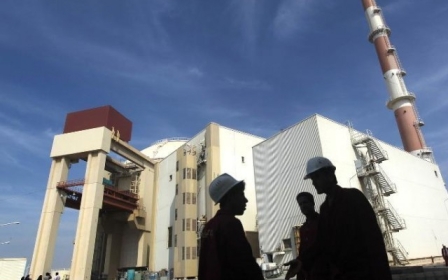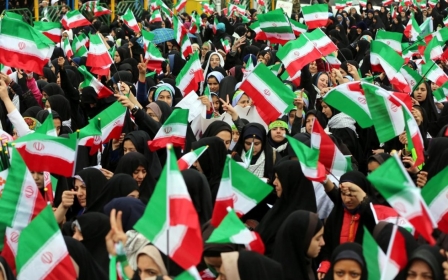Kerry acknowledges 'significant gaps' in Iran nuclear talks

US Secretary of State John Kerry was set to arrive in Geneva on Sunday for renewed talks with his Iranian counterpart on Tehran's nuclear programme, after warning that "significant gaps" remain ahead of a key deadline.
World powers are trying to strike a deal with Iran that would prevent Tehran from developing a nuclear bomb in return for an easing of punishing international economic sanctions.
Iran denies its nuclear programme has military objectives.
Kerry had been set to arrive in the Swiss city on Sunday morning for two days of talks with Iranian Foreign Minister Mohammad Javad Zarif, but was delayed in London and only likely to arrive by late afternoon.
US and Iranian diplomats, who have been meeting in Geneva since Friday, are working against a 24 March deadline to conclude an agreement that would limit Iran's nuclear technology, impose tough international inspections and gradually lift economic sanctions in return.
A key stumbling block in any final deal is thought to be the amount of uranium Iran would be allowed to enrich, and the number and type of centrifuges Tehran can retain.
Under an interim deal reached in November 2013, Iran's stock of fissile material has been diluted from 20 percent enriched uranium to five percent in exchange for limited sanctions relief.
Clock ticking
There is a heightened sense of urgency as the clock ticks down towards a 31 March deadline to agree on a political framework for the deal.
But Kerry warned in London on Saturday that "there are still significant gaps, there is still a distance to travel."
"President (Barack) Obama has no inclination whatsoever to extend these talks beyond the period that has been set out," Kerry said.
He said the P5+1 was "unified" in its views of what was needed to reach a deal, adding that the Geneva talks would help show "whether or not Iran is able to match its words about its willingness to show that its programme is fully peaceful."
As a sign that efforts were intensifying, US Energy Secretary Ernest Moniz arrived in Geneva on Saturday to take part in the talks for the first time.
Israel concerned
There has been increasingly strained ties between the US and Israel over the nuclear deal with Iran.
Last week the US accused Israel of selectively leaking information from the Iran nuclear talks to misrepresent its position in the negotiations.
White House spokesman Josh Earnest said that Israel was "cherry-picking" information and using it out of context.
State Department spokeswoman Jen Psaki confirmed that there was a "selective sharing" of information.
"I think it's safe to say that not everything you're hearing from the Israeli government is an accurate reflection of the details of the talks," she said.
Unnamed US officials told the Associated Press news agency that politically motivated leaks from Israeli officials had made it impossible for the US to continue to share all details of the talks.
The accusations come less than two weeks before Israeli Prime Minister Benjamin Netanyahu is due to address a joint session of the US Congress on the threat from Iran.
Netanyahu is expected tell Congress that the agreement is “bad and dangerous,” and to call for new sanctions against Iran.
New MEE newsletter: Jerusalem Dispatch
Sign up to get the latest insights and analysis on Israel-Palestine, alongside Turkey Unpacked and other MEE newsletters
Middle East Eye delivers independent and unrivalled coverage and analysis of the Middle East, North Africa and beyond. To learn more about republishing this content and the associated fees, please fill out this form. More about MEE can be found here.




